Conservative Prospects
in the Second Age of Malcolm
Part Two
[Return to: Part One]
IV
Tony Abbott went to the 2013 election promising to restore freedom of speech by repealing §18C of the Racial Discrimination Act 1975 (Cth) only to break this promise a year later. Abbott bowed down to anti-conservative forces and the sectional interests of ethnic lobby groups opposed to the common good of Australia. On 25 September last year Family First Senator Bob Day introduced the Racial Discrimination Act Amendment Bill 2014 (Cth). This Bill does not repeal the section in toto, let alone the whole Act, but it does seek to remove the words “offend” and “insult” from the Act which make it an offence to “offend, insult, humiliate or intimidate a person on the basis of their race, colour, or national or ethnic origin”. This goes a little way in restoring freedom of speech in Australia. If the spirit of Menzies is no longer with the Liberal Party then it is with the minor conservative parties and their elected members such as Senator Day. The question then is, should conservative activists and thinkers join these minor parties—specifically a new Conservative Party—or not?
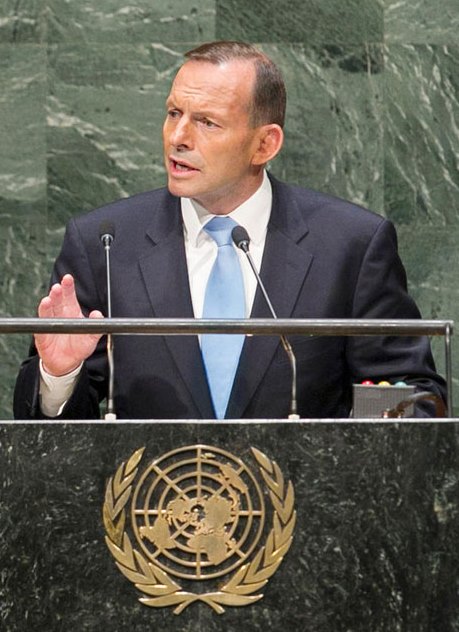
Former Prime Minister Tony Abbott at the United Nations General Assembly
Naturally the first point we must consider is that any future Conservative Party will be doctrinally conservative, tautologically so. The trouble with Menzies choosing the word Liberal for Australian conservatism is that it reinforced the “broad church” of non-Labor politics. Free trade liberals, Empire loyalist traditionalists, and rural agrarians were all part of the various parties against Labor in the first half of the 20th century. In creating the Liberal Party it came to absorb many of these disparate elements, and those that would not assimilate were brought into a Coalition government. Conservatism had to compete with liberalism in this mix, and in this chaos people have confused liberalism for the real thing. But as traditionalist commentator Luke Torrisi recently said in an interview about this so-called broad church “the walls have moved so far apart the roof is caving in.”1
An explicitly conservative party leaves no room for such a scenario. The walls will not drift from its congregation bringing them ruin. This will be so for two reasons: one, true conservatism will not be drowned out by the alluring siren call of market liberalism and non, or anti-conservative or other revolutionary tendencies – they will not be in the party, pure and simple – and two, those attracted by such ideas will not want to join an explicitly conservative party, nor will they be welcome. There already exist several parties for the promotion of non-conservative principles; it is time for conservatives to have a home once more.
However, just because there will not be any leftists involved does not mean that things will run smoothly. In established parties there are power networks and greasy polls to climb to the top of the hierarchy; in a new party there would be big fish in a small pond. The kind of climate that party politics creates tends to attract hostility, dysfunction and the characters that seem to thrive in this milieu; one could be forgiven for thinking that major parties often sort for people with odd personalities, apparent sociopaths being preferred. Of course, this is not always the case and good principled people occasionally get seats in parliament, such as Senator Cory Bernardi. Though the establishment finds ways to correct such ‘anomalies’ by either discouraging or making it more difficult for conviction politicians to succeed. For example, there have been numerous attempts to place known conservatives lower on Senate tickets or block them from being preselected for the House of Representatives. There is little wonder why people are turned off from such politics, but not even political hacks who are repulsed by this should be in Parliament. The ruthlessness entailed by such politics is worthy of admiration in a certain light, and the talents required could be used to advance conservative principles rather than self-aggrandisement.

Senator Cory Bernardi
It is true that some people in minor parties are there because they could not compete in the cut-throat world of established party political life; this ensures a situation where talentless candidates stand against seasoned hacks for influence and power. A future Conservative Party will need to address this issue, especially as it may give rise to the problem of factionalism based not on principles but on personalities. As recent history in the so-called conservative faction of the Liberal Party has shown, talentless cranks will eventually fall out with one another. This can also be observed in the sundering of the Palmer United Party (PUP).
The PUP was formed out of reaction to all mainstream parties, and as such all and sundry joined the new movement and all sorts of contradictory positions were held by the party grouplings and their candidates. With the ensuing number of defections (a large number of members soon became “independents”) it is clear that the candidates selected did not have a firm grasp on any set of principles and were using the PUP as a vehicle for personal Parliamentary representation. A future Conservative Party will have to have a selection mechanism akin to the establishment’s, but where they prefer the unscrupulous, only those whose principles are unimpeachable will be selected. Yet, this type of factionalism, which seems to be a function of any organised body of ambitious people, is still an obstacle that a new party will need to deal with.
The final point we will consider is the issue of its voter and activist base. The largest problem faced by all minor right-wing parties that gain traction is that of “burn out.” The vast majority of the Media, political establishment and even Big Business will be against an explicitly conservative party. Faced with such an uphill battle, the idealism of the ordinary members and supporters of such a party will be sorely tested. We have seen it all before with the phenomenon of Hansonism and the One Nation Party. The enthusiasm of the supporters, their contribution of time and resources in particular is commendable, but it did not prove to be sustainable and inevitably the mood turned to that of bitterness and cynicism. We cannot blame the average supporter in this instance; it is a problem with leadership, in which the severity of the current situation is not firmly grasped. The leadership of a new Conservative Party will have to comprehend present political realities and address them, equipping the support-base with realistic expectations and goals.
This history of disappointment with new alternatives is further confounded with the phenomenon of tribal voting patterns. If the only choice is being a burnt out cynic or the backer of a winning side every few years campaigning for the Liberal Party, we can see why the latter is preferable to some.
V
The perception that the Liberal Party is a liberal party is the first issue conservatives wishing to stay in the Party need to address. As they say, perception is everything in politics. Without getting into what the definition of ‘is’ is, I mean here whether Menzies’ principles were moderate centre-right ones, with stress on its centrism, or whether they were of the Right as we have said. This is not to undercut what is written earlier,2 however the founding documents are clear that Liberalism is a functional part of the Australian conservative tradition, but we are talking about perception now.

Mark Textor, liberal strategist
The moderates in the Party perceive it to be a moderate and liberal party, and to have been founded as such. Indeed, they think it is a good thing that conservatives are leaving in droves; the idea being that moderate policies will attract ‘swing voters’, and furthermore, that conservatism is actually a burden to the project of staying in government. In the words of Liberal Party strategist, Mark Textor, “the qualitative evidence is [conservatives] don’t matter…the sum of a more centrist approach outweighs any alleged marginal loss of so-called base voters.”3 The party’s founder, Menzies has an apt response to this, when he declared that “Liberals with a small ‘l’” are “Liberals who believe in nothing but who will believe in anything if they think it worth a few votes.”4 It is remarkable how time has not diminished the accuracy of this statement – plus ça change, mes amis. The public and private views of Menzies add up to give us the conclusive answer that the Liberal Party was never intended to be a liberal one (in the sense that the term is used in the United States).
Why then do conservatives not challenge the moderates on this point and instead peddle the self-destructive notion of a broad church? This is misguided politics. For how can conservatives in good conscience stay in the party, or ask other conservatives to join when the perception that it is a liberal Party remains unchallenged? It goes beyond this into the realms of absurdity where conservatives in the Party have not only not challenged the moderates, but have actually acquiesced to their ideological hegemony.
The moderates settled old scores with their fellow conservative colleagues in the recent cabinet reshuffle, after Malcolm Turnbull’s coup against Tony Abbott successfully unseated what the public saw was a conservative Prime Minister. In conservative discussion groups around the country this outcome – the elimination of conservative influence in government – was foretold as soon as the leadership spill was announced. Though what none could have predicted was the level of political cuckoldry displayed by some prominent conservative politicians.
Eric Abetz, Kevin Andrews, and Cory Bernardi. The base should have been told to avenge these men. A conservative leader in the party would counsel his followers to prepare for open warfare with the moderates; which is exactly what Abetz did not do. Instead in the Senate, the day after the spill he proclaimed, “the king is dead, long live the king! The Prime Minister has our support.”5 Although this statement was undoubtedly an act of political damage control, in that the image of a stable and united front against the Opposition Labor Party had to be maintained in the eyes of the public, grass-root conservatives instead saw it as comparable to the Old Bolsheviks grovelling before Stalin. Regardless, that very day was the time for conservatives in the Party to stand their ground to rally the base voters and non-Party conservatives to them. Despite his loyalty to the Liberal Party brand, Abetz has relinquished his claim to being part of the conservative leadership in this country for not making it clear that conservatives within and without the party are no feeble or diminishing force.
In a twist that illustrates Andrews’ somewhat eccentric personality, he in fact did take some parting shots at Turnbull, but erroneously beseeched the new Prime Minister to remember that the Party is a broad church – this is an inherently defensive and meek response to a political crisis and it certainly does not engender respect. In an article he wrote for Quadrant in 2011, he appeals to the thought of Immanuel Kant.6 To be fair, Roger Scruton makes such appeals at his more eccentric moments also. Andrews is an intellectual and a true conservative, his is a conservatism with some lacunae. Thus far it has been only Bernardi whose conduct has been above reproach in this episode.
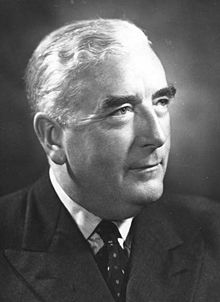
Sir Robert Gordon Menzies
The Party conservatives’ response to the conservative exodus has been that of defending the status quo. The standard argument is that the Party is the only vehicle for Australian conservatives. Abetz implored the base “to vote Liberal, support the Coalition, support the PM, support the government” because “it is the party and its beliefs to which we owe allegiance.”7 Yet evidence suggests this view to be unfounded. The beliefs being alluded to here are those of Menzies, and if you recall, Menzies by the 1970s viewed the party to no longer adhere to his principles. This – of course – is much more evident today. Secondly, if the principles of Menzies are true and are those of good government and more broadly of Australian conservatism, they can exist in any political party or outside of parties all together, and retain their truth. Indeed, Menzies voted against the party he founded twice, voting for B.A. Santamaria’s Democratic Labor Party. Invoking the Partiya Menziesya does not cut it, and is a particularly weak argument. The strongest argument to be made for remaining in the party is that it has the resources and networks ready to be used by conservatives if only they would do so.
Assuming the issue of the moderates is adequately addressed, it then becomes an issue of battling with the party establishment as a whole for control. With conservatives joining en masse, they will have access to a readily available party apparatus with the support needed to campaign, produce pamphlets and so forth. This is preferable to accumulating enough capital to found a party and the burden it places upon its support base. But here we stumble upon largest trap of all; conservative groups will be permeable to a hostile establishment. An attempt at grafting conservative parallel institutions onto the party establishment will create a bridge in and out of both camps. The establishment could cut off resources, freeze conservative branches and expel members for example – such things are certainly not unprecedented. More worryingly is the temptation the idea of being part of the in-group of the establishment will be for many people. Human nature being what it is, the weak willed and less knowledgeable in matters conservative will be picked off one by one and assimilated into the ‘Borg’ of machine factional politics. Quite simply, conservative parallel institutions in their infancy will be no match for the establishment inside the Party.
Having considered the reasons for both positions, they are both as good as the other. Equally good, that is, for those wanting to perpetuate the eternal recurrence of what Sam Francis called being a “beautiful loser.” Yet, there are solutions to every impasse we have come to in raising these points. They are not political solutions, which is why they have not been considered so far. They point outside of party politics into the realm of the pre-political (in this sense), towards a social movement. The third part of this article will address this coming social movement.
[Go to: Part Three]
– Morgan Qasabian is a student of history and philosophy and a long time conservative activist.
Endnotes:
- Max Opray, “Rallying the right” The Saturday Paper (3 October 2015) p. 3.
- Morgan Qasabian, “Conservative Prospects in the Second Age of Malcolm: Part I” SydneyTrads (17 October 2015) <sydneytrads.com> (accessed 17 October 2015) at § 3.
- Chip Le Grand, “Disgruntled Liberals explore far-right party options” The Australian (online) (26 September 2015 @ 12:00AM) <theaustralian.com.au> (accessed 12 October 2015).
- Robert Menzies to Heather Henderson, 8 April 1974, in Letters To My Daughter: Robert Menzies, Letters, 1955-1975 Heather Henderson (ed.) (Millers Point: Pier 9, 2011) p. 261. In another letter to Heather, his daughter, Menzies wrote, “but why should I, at my age, have to be worrying myself about what is happening to the Party which I created, a Party which had principles to which I most firmly adhere, principles which have now been completely abandoned by what they call the ‘little l’ Liberals.” Menzies to Henderson, 24 July 1974, op. cit., p 265.
- Commonwealth, Parliamentary Debates, Senate, 15 September 2015, p. 16 (Eric Abetz); the reference is from the ‘proof’ document available online. [SydneyTrads Editors: N.b.: reference to the relevant proceedings are now (i.e. 11 November 2015) recorded on p. 6795 of the Commonwealth Hansard as approved by the Senate].
- Kevin Andrews, “The Greens’ Agenda, in Their Own Words” Quadrant 55 Nos. 1–2, (Jan/Feb 2011) pp. 29–35.
- Dennis Shanahan, “Hundreds of Liberal members resigning after Tony Abbott exit” The Australian (online) (1 October 2015 @ 12:00AM) <thesutralian.com.au> (accessed 12 October 2015).
Citation Style:
This article is to be cited according to the following convention:
Morgan Qasabian, “Conservative Prospects in the Second Age of Malcolm: Part II” SydneyTrads – Weblog of the Sydney Traditionalist Forum (17 October 2015) <sydneytrads.com/2015/10/17/2015-symposium-morgan-qasabian-pt2> (accessed [date]).
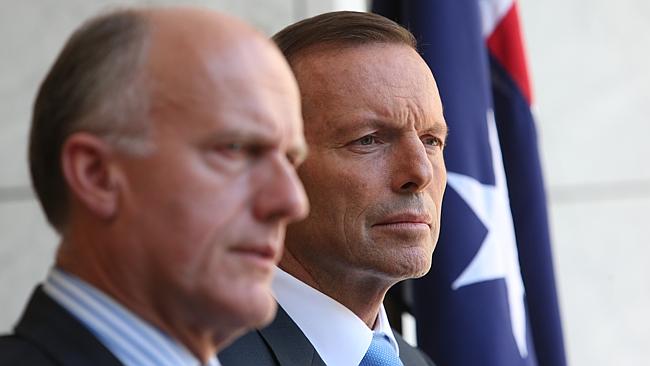

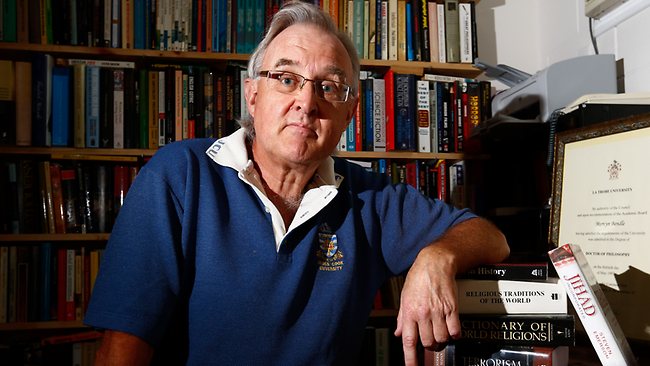

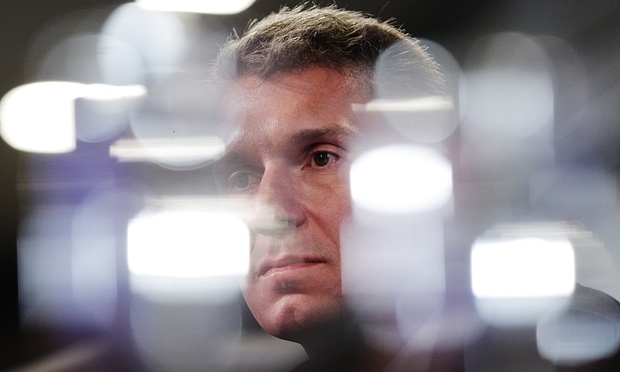
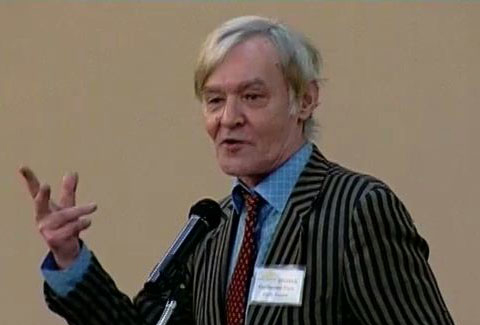
Leave a comment